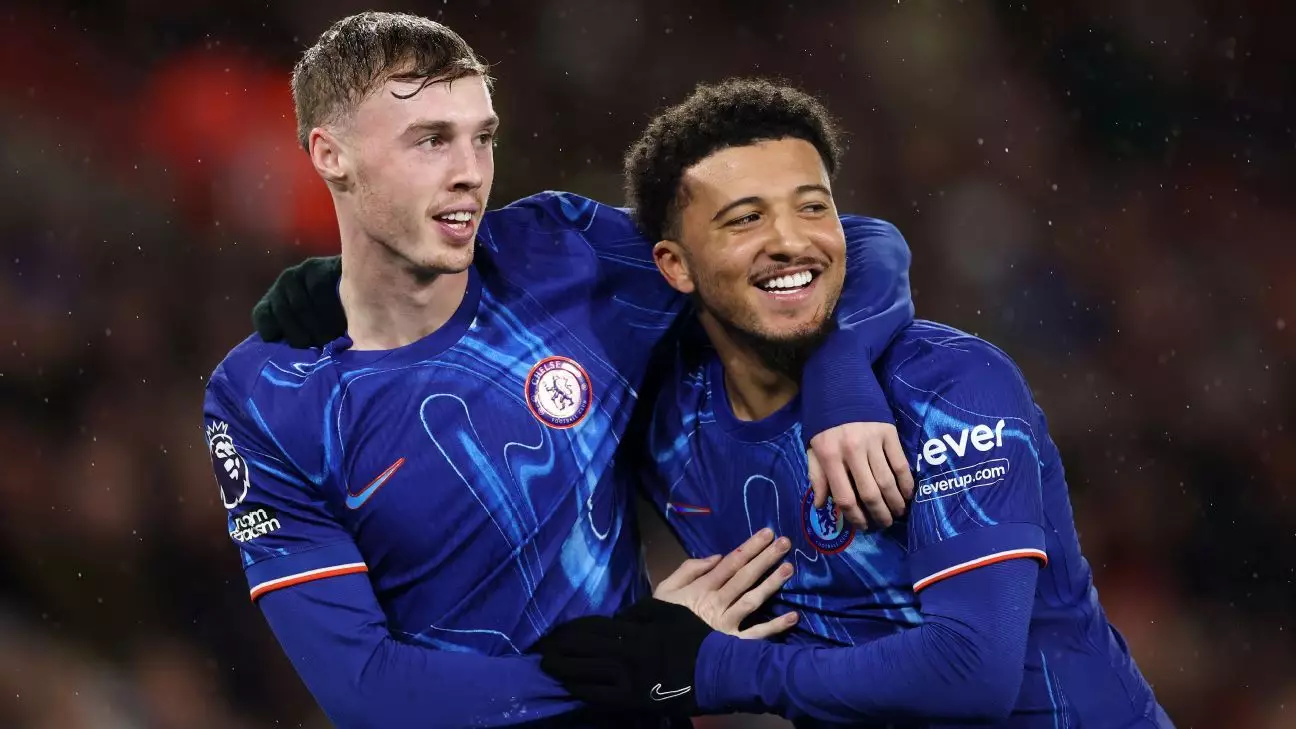Manchester City enjoyed an unprecedented rise in English football, culminating in a historic fourth consecutive Premier League title last season. However, the current season paints a dismal picture, marked by a series of disappointing results. With nine losses out of their last twelve games across competitions, Pep Guardiola’s squad is struggling to maintain its once-dominant stature. Despite topping the charts of football academies in talent production, City now finds itself in a disheartening situation, seemingly forsaking its young gems for short-term fixes and expensive signings.
As they prepare for an expensive January transfer window, the club faces a reality-check regarding its strategy. The answers to their pressing issues may have been nurtured within their own academy walls, yet they allowed these potential stars to slip away to rival teams. The current seventh position in the Premier League and a looming Champions League showdown with Paris Saint-Germain highlight the urgency for revitalization. Yet, it raises the question: should City have recognized the value of their homegrown talent rather than letting it flourish elsewhere?
Guardiola’s team, once renowned for its youthful energy and vibrancy, is now characterized by an aging core. Players like Ilkay Gündogan, Kevin De Bruyne, and Kyle Walker, all above 30, are revealing the frailties of age, and performance inconsistency is evident in others. These veterans, who have been instrumental to the club’s past successes, are increasingly unable to bear the weight of expectations in a demanding league.
The stark realization of what has been lost was painfully highlighted in recent matches, particularly when Morgan Rogers scored against Manchester City while playing for Aston Villa. Rogers is a product of City’s academy—one of many whose talents they identified and nurtured but ultimately let go. Along with Rogers, players like Cole Palmer and Michael Olise have risen through the ranks at other clubs, rendering City’s current predicament even more frustrating.
Guardiola must grapple with the irony that the very talents he once guided are now thriving with their respective clubs while his team struggles. The question arises: could City have secured their futures at the Etihad, rather than seeing them make headlines elsewhere?
City prided itself on a robust academy system that has outperformed rival clubs in producing elite players. Since the investment in the Etihad Campus, the club’s academy has yielded remarkable talent, generating significant transfer income. According to Transfermarkt, City has amassed £363 million from offloading homegrown players since 2014, which constitutes almost half of their total transfer revenue.
However, the organization must reevaluate its approach towards youth development and player retention. While it is commendable to reap profits from strategic sales, could this policy be inadvertently harming the club’s long-term prospects? By opting for market-ready stars instead of allowing homegrown players to transition smoothly into first-team roles, City risks marginalizing those who have dedicated their formative years to the club.
Comparatively, clubs like Manchester United and Liverpool have demonstrated a commitment to youth integration over the years, nurturing their homegrown talent into legendary figures. The importance of patience and foresight cannot be overstated. Instead of chasing expensive reinforcements, City might have better served its ambitions by investing time and trust in players such as Palmer and Rogers.
Recognizing the Consequences of Complacency
As City continues to scout for reinforcements amid its recent slump, the analysis of their academy’s output suggests an underlying issue that transcends immediate fixes: a lack of foresight and patience. Guardiola’s admiration for veteran leaders is commendable, but it shouldn’t equate to the dismissal of emerging stars eager to prove their worth.
Fans and analysts alike are beginning to wonder if City’s immense resources have led to a sense of complacency—one that could have dire implications. The success-driven nature of elite football necessitates swift adaptations, and the refusal to grant young players their rightful opportunities could cost Manchester City dearly in the long term. They now face scrutiny not only for their on-field performances but also for their failure to cultivate an environment where young talents are given a fair chance to thrive.
Manchester City must reassess its values and approach to player development. Embracing its academy’s products could ensure a brighter future and potentially restore the glory that once seemed inevitable. The lost talents that now shine in other leagues serve as a painful reminder: there is no substitute for homegrown loyalty and potential when navigating the unpredictable realms of football.

Leave a Reply